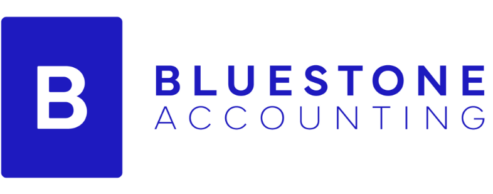Introduction
Choosing the right business structure is an important decision for any new business owner in Ireland. Whether you’re a seasoned business owner or just starting out, understanding the differences between operating as a sole trader and a limited company can have significant implications for your tax, legal liability, and business operations. This guide aims to demystify these options in plain, accessible language, helping you make the best choice for your business’s future.
What is a Sole Trader?
A sole trader is essentially an individual running a business on their own. This is the simplest form of business structure in Ireland and is favored by those starting out due to its straightforward setup, low cost, and reduced regulatory requirements when compared to a limited company. As a sole trader, you maintain full control of your business, but you are also personally responsible for any debts and legal actions. This means if your business runs into financial trouble, your personal assets could be at risk.
Key Features of a Sole Trader:
Simplicity and Control: As a sole trader, you are the business. You have complete control over the decision-making processes, the direction of business growth, and daily management. This autonomy allows for quick decisions and personal satisfaction in business achievements.
Ease of Setup: Registering as a sole trader in Ireland is straightforward. You need to register with the Revenue Commissioners for tax purposes, specifically for self-assessment. This involves fewer formalities compared to setting up a limited company.
Tax Responsibilities: A sole trader pays income tax on business profits through the self-assessment system. This setup requires maintaining accurate records of sales, expenses, and profits, and filing an annual return with the Revenue Commissioners.
Unlimited Liability: The most significant drawback of being a sole trader is unlimited liability. This means that there is no legal distinction between personal and business assets. In the event of business failure, creditors can claim the sole trader’s personal assets, such as a house or car.
Privacy: Unlike limited companies, sole traders are not required to file accounts or company details with the Companies Registration Office (CRO), offering more privacy.
Financial Management: Financial management as a sole trader can be less complex than in a limited company. The accounting requirements are generally simpler, focusing primarily on keeping track of income and expenditures for tax purposes.
Pros of being a Sole Trader:
-
- Simplicity and ease of setup.
- Full control over business decisions.
- Less bureaucracy and lower initial costs.
- Privacy.
Cons of being a Sole Trader:
- Unlimited personal liability.
- Potentially higher tax rates as income increases.
- Difficulty in raising capital.
- Perceived lack of professionalism.
- Limited capacity for growth.
What is a Limited Company?
In Ireland, a limited company, often abbreviated as LTD, is a business structure where the company is a separate legal entity from its owners. This means the company’s finances and liabilities are separate from the personal finances of its owners, who are known as shareholders. The company is managed by directors, who may also be shareholders.
Key Features of a Private Limited Company:
Limited Liability: The primary advantage of an LTD is that it provides its owners, known as shareholders, with limited liability. This means that the personal assets of the shareholders are protected; they are only liable for the company’s debts to the extent of the capital they have invested.
Separate Legal Entity: Unlike a sole trader, a private limited company is a separate legal entity from its owners. This allows the company to enter into contracts, accrue debts, and be sued in its own name.
Share Capital: An LTD is owned by shareholders who invest money in exchange for shares of the company. This structure makes it easier to raise capital by selling shares and can also provide an exit strategy for the founders.
Tax Efficiency: Limited companies in Ireland benefit from the 12.5% corporation tax rate on profits, which is one of the lowest in Europe. This can be more favorable than the personal income tax rates that apply to sole traders.
Professional Image: Operating as a limited company often conveys a more professional image, which can be beneficial in terms of attracting business clients and investors.
Statutory Requirements: Private limited companies must comply with more stringent regulatory requirements, including annual returns to the Companies Registration Office (CRO), maintaining certain statutory books, and submitting annual audited accounts.
Management Structure: LTDs are required to have at least one director and a company secretary, and they can have one to 149 shareholders. The management structure is often more complex than that of a sole trader.
Pros of a Limited Company:
- Limited liability protection.
- Potential tax advantages.
- Easier access to funding.
- Professional image.
- Perpetual succession.
- Ownership and management.
Cons of a Limited Company:
- More complex setup and administration.
- Costs of formation and maintenance.
- Public disclosure.
- Tax complexity.
- Dilution of control.
Thoughts on Tax
Understanding the tax implications of your business structure is essential for financial planning and compliance:
Sole Trader:
- Income Tax: Sole traders pay income tax on their business profits. The applicable rates are the same as personal income tax rates, ranging from 20% to 40%, depending on the profit level. This tax is paid through the self-assessment system, so you will need to file an Income Tax Form 11 return each year by the 31st of October for the previous year’s business results. Eligible for personal tax credits but pays income tax on profits exceeding these allowances.
- PRSI and Universal Social Charge (USC): In addition to income tax, sole traders must pay Class S Pay Related Social Insurance (PRSI) contributions, which provide access to social welfare benefits. The rate for Class S contributions is 4% on all income. Sole traders also pay the Universal Social Charge on their income, which is another layer of tax that ranges from 0.5% to 8%, depending on the level of income. Be aware that there is a 3% surcharge on sole trader profits over €100,000 per year. That’s a minimum of €3,000 extra in tax. To avoid this, set up as a Limited Company.
- Cashflow: You will pay your Income Tax once a year rather than through payroll. This can make it difficult to budget and save for that one-a-year tax bill.
- Expenses and Deductions: You are not an employee of your business, unlike a business, so some business expenses are not allowable as a business expense as a sole trader.
Limited Company:
- Corporation Tax: The primary tax for private limited companies in Ireland is the corporation tax, which is levied at one of the lowest rates in Europe, 12.5%, on trading profits. This rate is notably lower than the top personal tax rate that sole traders might face. Dividends paid to shareholders are taxed separately as personal income.
- Control Over Pay: Directors of limited companies can choose to take their income through a combination of salary and dividends, potentially lowering their overall tax liability compared to a sole trader’s income tax situation.
Employer PRSI Contributions: Companies must make employer PRSI contributions on salaries, which differ in rates from those paid by sole traders. - Tax-Deductible Expenses: Limited companies enjoy a broader scope of tax-deductible expenses, which can be used strategically to reduce taxable profit. This includes salaries (provided they are wholly and exclusively for business purposes), business equipment, and pension contributions.
- Deferred Taxation: Companies can benefit from deferred taxation opportunities. Money that remains within the company may only be taxed at the corporation tax rate, and additional taxes are deferred until profits are distributed.
Legal Liabilities and Protections
One of the most significant differences between sole traders and limited companies is the level of legal protection:
Sole Trader:
- Personally liable for all business debts and legal issues.
- Personal assets, like your home or car, could be at risk if your business fails.
Limited Company:
- The company is a separate legal entity, so personal liability is limited.
- Shareholders’ personal assets are generally protected, except in cases of fraud or serious negligence.
Cost and Complexity of Setup and Management
Setting up your business structure correctly from the start can save you time and money:
Sole Trader:
- Register for tax with Revenue: You need to register as self-employed with the Revenue Commissioners. This is done by completing the TR1 form. While you have to register for Income Tax, you will also need to register for PREM (Payroll Taxes) and VAT, if applicable.
- Set Up a Business Bank Account: It is best practice to set up a bank account for your business that is separate from your personal account. A big mistake that new sole traders make is that they use their personal bank account as their business account as well. Mixing your personal and business banking transactions is like mixing oil and water in a car.
- Set up your Bookkeeping: Although less formal accounting is required, you still need to keep all receipts and track expenses for tax purposes. To do this, we recommend using QuickBooks Online to keep track of your income and expenses.
Limited Company:
More steps to set up: requires registration with the CRO, setting up a board of directors, and possibly more.
Setting Up as a Limited Company:
- Company name reservation: Decide on a unique name and check its availability with the Companies Registration Office (CRO).
- Register with the CRO: You must file the Constitution of the company (which includes the Articles of Association and the Memorandum of Association) and Form A1, which states the company’s registered office, directors, secretary, and shareholders.
- Obtain a Company Registration Office (CRO) number: Once registered, your company will be assigned a CRO number.
- Set up a business bank account: A bank account in the name of the company is required for all financial transactions. We recommend setting up two accounts, one for your day-to-day business activities and another account for keeping some funds to one side to cover the VAT, payroll, and other taxes.
- Register for taxes: Register for Corporation Tax, Employer PAYE/PRSI (if you will have employees), and VAT (if applicable) with the Revenue Commissioners.
- Set up your Bookkeeping: Keep detailed records of all company financial records. Keep it simple and use cloud accounting software like QuickBooks Online. This will help you ensure you bill your customers on time, keep track of your cash and your business performance.
Deciding What’s Best for Your Business
Choosing the right business structure depends on several factors:
- Scale and scope of your business: A sole trader might be sufficient for small, low-risk businesses, whereas a limited company could
- be better for larger operations.
- Financial goals: Consider your income expectations and potential tax savings.
- Risk tolerance: Evaluate how much personal financial risk you are willing to take.
Conclusion
Whether you choose to operate as a sole trader or form a limited company in Ireland depends on a variety of factors, including your business goals, financial needs, and personal risk tolerance. Each structure offers distinct advantages and disadvantages, and the right choice can significantly impact your business’s success and your personal liability.
Ready to set up your business structure or need more personalized advice? Why not book a 1-hour consultation with us today? We are here to guide you through every step, ensuring your business is positioned for success.
Why not check out our blog on the Best Business Banking for Startups?


